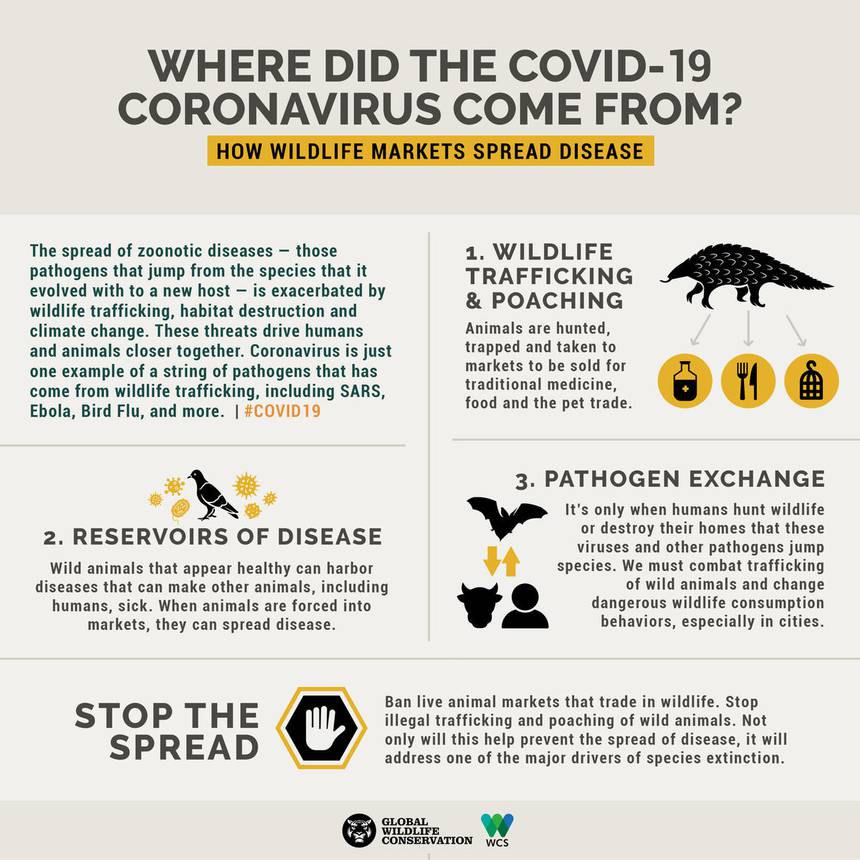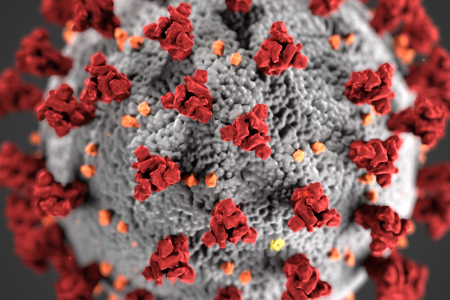In order to put an end to the COVID-19 coronavirus outbreak and other zoonotic diseases, people need to understand and respect natures boundaries and learn to live in harmony with other species.
According to research conducted by Yale School of Forestry & Environmental Studies, David Quammen said that according to experts, the next deadly outbreak likely to occur is most probably going to be from a virus that humans contract from wildlife.
Contents
What are Zoonotic Diseases?
Quammen also mentioned that the recent outbreaks that spilled over to humans from wildlife such as SARS and Ebola, which are known as zoonotic diseases. Experts are always contemplating over which of these is going to be the “Next Big One” by which they mean a deadly pandemic sweeping across the globe while claiming millions of lives in the process. This is something that happened as a result of the Spanish influenza back in 1918 and something that AIDS has been doing but much more gradually and what would have happened in 2003 if SARS was not controlled by fast science, extreme measures taken for the sake of public health, and luck.
Origin of viruses
Viruses do not just appear out of nowhere and almost 58% of all human infecting pathogen species are all zoonotic and another study claims that 72% of all recently surfaced zoonotic pathogens have originated from wildlife as Quammen has explained. What SARS, Ebola, influenza and HIV have in common is that all of them came from wildlife.
The way in which Pathogens make their way from wildlife to humans is just via simple contact between human and wildlife.
Another frequent question that Quammen answered is why these outbreaks are occurring more frequently. According to him, the interaction between people and the wildlife is causing disruptions in the ecosystem of their habitats to a significant degree.
Humans to blame for the deadly outbreaks
Humans are getting out of control and wreaking havoc without any remorse. We too are a part of nature and while it is our home as well, we have forgotten how to live in harmony and coexist with other species in nature. One example in which harmony and cohabitation is clearly evident is the First Nation in coastal Canada and how after being there over 13000 years, they have managed to actually improve and expand the forest where they live.

Zoonotic diseases and coronavirus outbreak
The way that Zoonotic diseases come about is closely related to the different ways in which humans come in contact with wildlife. And so the way COVID-19 coronavirus outbreak happened is through contact between the two in an animal market that works with wildlife.
Scientists from the Chinese Centre for Disease Control have established that this in fact came from a live animal market that was swarming with a variety of wildlife species which became the origin of coronavirus outbreak, according to WCS. This situation could simply be a consequence of a person slaughtering or consuming an animal with the coronavirus and then eventually spilling into the human population all over the world.
Humans need to be more considerate about wildlife
According to the executive director at the WCS Health Program, Dr Christian Walzer, it is crucial that the wildlife consumption situation be addressed immediately. He has said that the governments must be aware of the zoonotic diseases that pose a threat to the global public health. The time has come to shutdown markets trading in wildlife and work on modifying these dangerous consumption habits. He also believes that it is integral that resources are allocated towards researching new viruses and more significantly identifying the “epidemiological drivers of zoonotic spillover, amplification, and spread of infectious diseases.”
According to Hoang Bich Thuy, the Country Director of WCS Vietnam, each country needs to step up and join force as to combat and prevent such outbreaks by imposing a ban on trade and consumption of wildlife. “If just one country continues to allow the trade in wildlife, communities across the world will continue to suffer and pay the price.”

